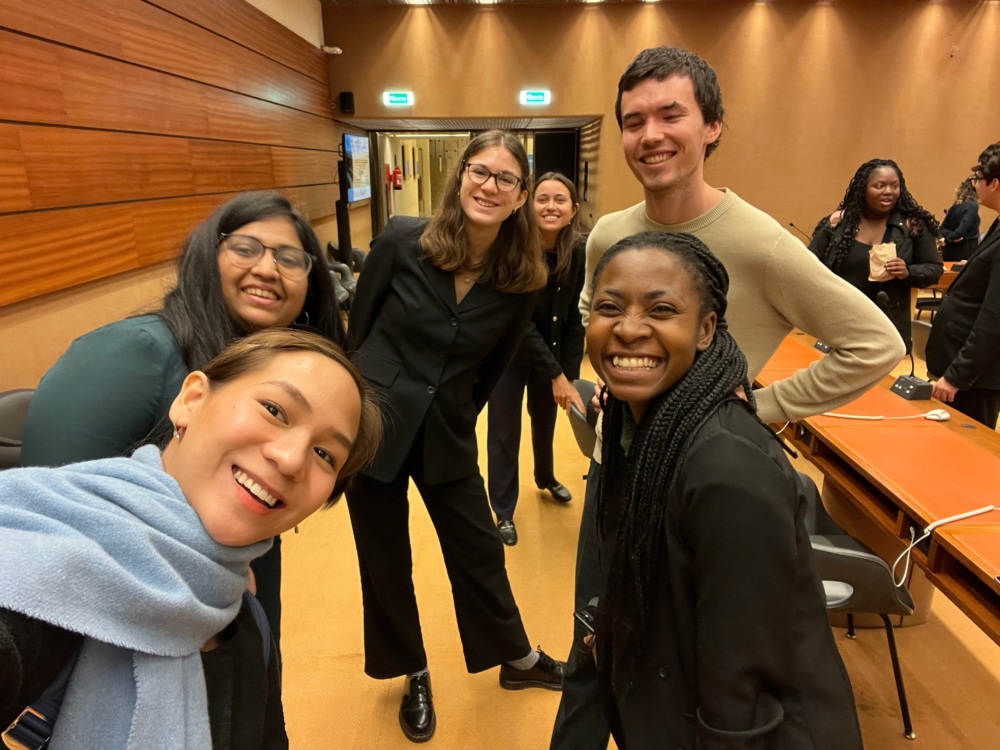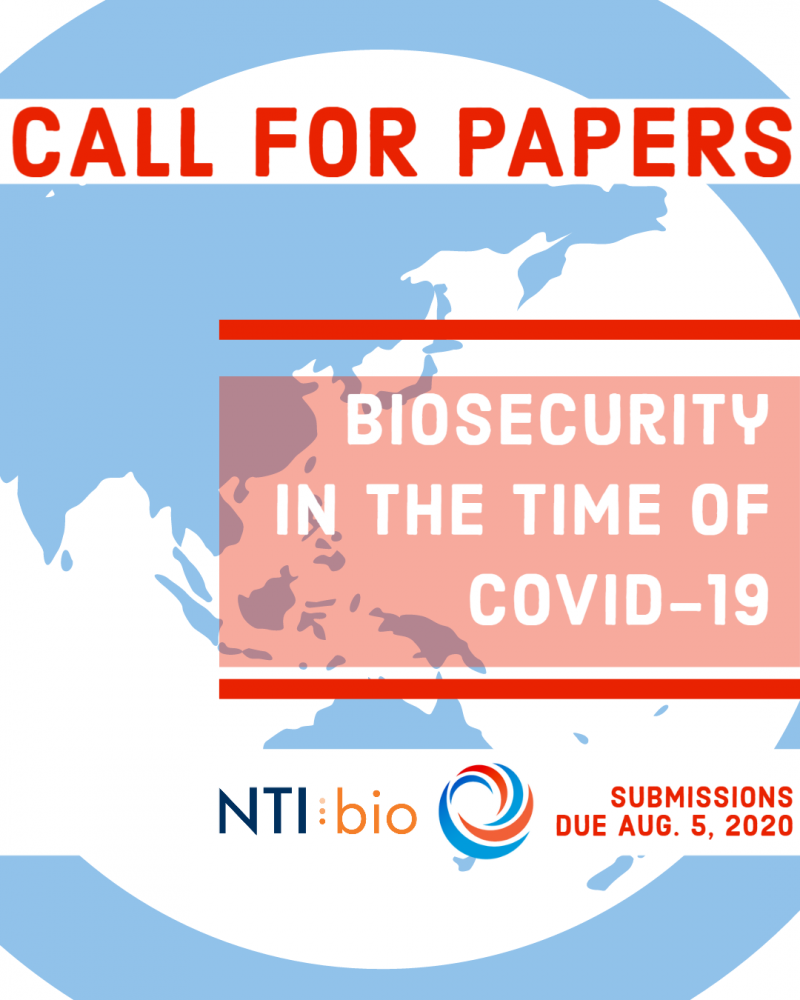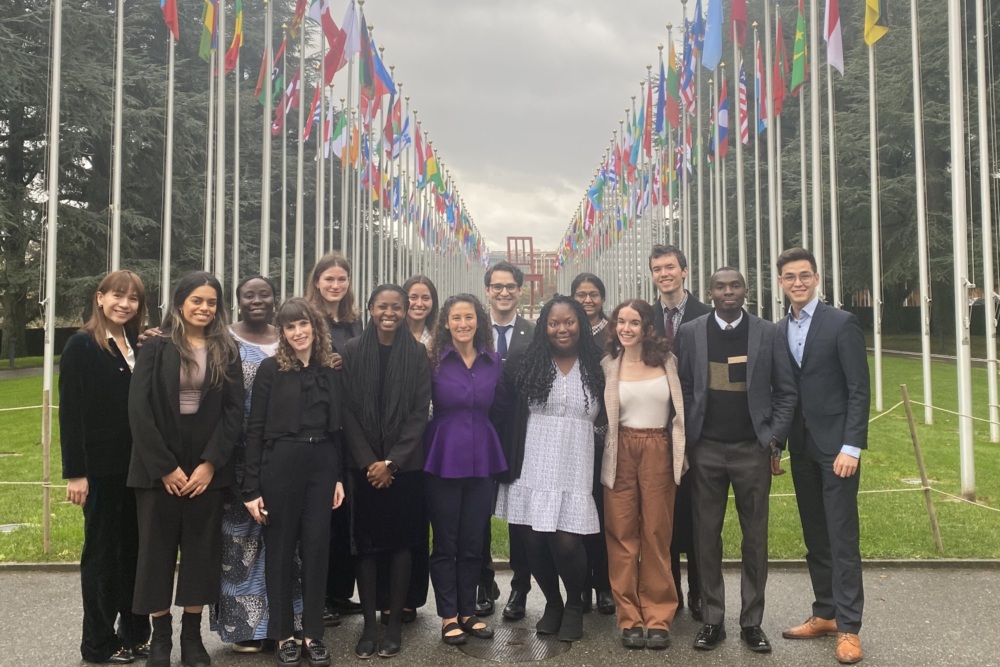
Apply for the 2024 NTI | bio Next Generation Biosecurity Delegation
NTI | bio will bring a 2024 Next Generation Biosecurity Delegation of early-career professionals to the Biological Weapons Convention (BWC) meetings from August 19 – 23.
NTI | bio is partnering with the Next Generation Global Health Security (GHS) Network to launch the fourth annual Next Generation for Biosecurity Competition to foster biosecurity professional development within the Next Generation GHS Network and to advance Global Health Security Agenda (GHSA) biosecurity-related targets. We are seeking innovative and creative papers for online publication by NTI | bio and the NextGen GHS Network focused on biosecurity related to COVID-19 and future outbreaks/pandemics. In addition to publication, the winning team will have the opportunity to present during a virtual side-event of the 2020 GHSA Ministerial*, which has shifted to an online format, in light of the COVID-19 pandemic and the associated travel restrictions. Each winning team member will also receive an award, up to $2,500 each, based on the number of selected winners. The judging panel may award additional teams with the opportunity for publication and financial awards up to $1,500 per team member.
Submissions should address the following question and subordinate considerations:
What are technical and/or political actions global health security community stakeholders should take either nationally or internationally to reduce biosecurity-related risks associated with COVID-19 and future outbreaks/pandemics?
ELIGIBILITY
SUBMISSION REQUIREMENTS
UPDATED DEADLINE: Submission deadline is August 26th, 2020 at 11:59PM ET. Submissions should be sent in pdf form to NTI via [email protected] AND via this Google Form.
COMPETITION GOALS
ABOUT THE SPONSORS
NTI is a nonprofit global security organization focused on reducing nuclear and biological threat imperiling humanity. NTI has addressed biosecurity issues since our founding in 2001. NTI | bio is developing new initiatives to curb global catastrophic biological risks, catalyze international biosecurity norms and innovation, enhance biosurveillance for emerging threats, and advocate for measurable biosecurity commitments as an integral component of the Global Health Security Agenda (GHSA).
The Next Generation Global Health Security (GHS) Network engages and facilitates contributions by emerging scholars, scientists, and professionals from government and non-governmental institutions to the Global Health Security Agenda (GHSA) and other global health security projects. Through its mission, the Next Generation Network promotes the values of education, innovation, and participation to approach and overcome the biggest challenges facing the health security fields today.
*NOTE: The side-event must first be confirmed by the 2020 GHSA Ministerial planning committee. Confirmation expected in early September.
[1] “A whole-of-government national biosafety and biosecurity system is in place, ensuring that especially dangerous pathogens are identified, held, secured and monitored in a minimal number of facilities according to best practices; biological risk management training and educational outreach are conducted to promote a shared culture of responsibility, reduce dual use risks, mitigate biological proliferation and deliberate use threats, and ensure safe transfer of biological agents; and country-specific biosafety and biosecurity legislation, laboratory licensing, and pathogen control measures are in place as appropriate.” (Joint External Evaluation Tool and Process Overview. Geneva: World Health Organization; 2016. License: CC BY-NC-SA 3.0 IGO.)
Sign up for our newsletter to get the latest on nuclear and biological threats.
NTI | bio will bring a 2024 Next Generation Biosecurity Delegation of early-career professionals to the Biological Weapons Convention (BWC) meetings from August 19 – 23.
This year, the competition invites innovative and creative papers focused on how investments in biosecurity can both contribute to a more equitable society and reduce biological risks.
Gurpreet Dhaliwal, Askar Kleefeldt, and Alexandra Klein have won the seventh annual Next Generation for Biosecurity Competition.


